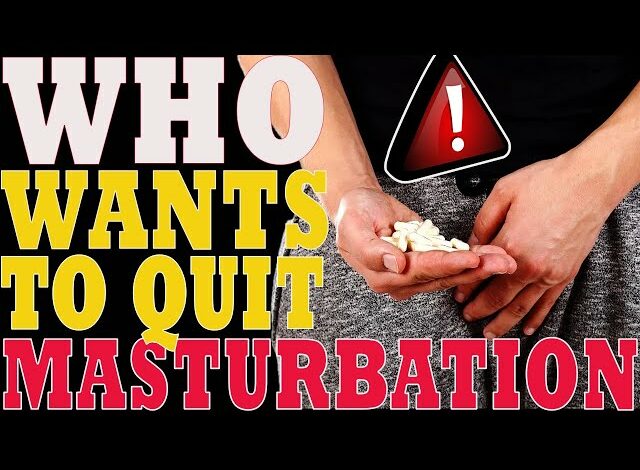5 Effective Ways to Overcome Masturbation Addiction

Masturbation is a natural behavior, and for many, it’s a normal part of sexual development. However, when it becomes excessive, compulsive, or begins to interfere with daily life, relationships, or personal goals, it may be time to take control. Overcoming a masturbation habit—especially if it feels like an addiction—requires self-awareness, discipline, and support.
Here are five practical and healthy ways to overcome compulsive masturbation:
1. Identify and Avoid Triggers
Understanding what leads to the urge is key. Triggers can be emotional (loneliness, stress), environmental (being alone for long periods), or digital (pornography, suggestive content on social media).
Tips:
-
Stay away from pornographic websites or apps.
-
Install content filters or blockers on your devices.
-
Change your routine to avoid idle or vulnerable times (like late at night or when you’re alone).
Why it helps: Removing or reducing exposure to triggers weakens the habit over time and gives you more control over your choices.
2. Stay Busy with Purposeful Activities
Idle time can invite temptation. Replacing masturbation with meaningful activities helps redirect your focus.
Suggestions:
-
Take up hobbies like reading, sports, art, or music.
-
Exercise regularly—it reduces stress and boosts energy.
-
Volunteer or participate in community work.
-
Learn a new skill (coding, cooking, etc.).
Why it helps: A busy mind and body are less likely to fall into old, unwanted patterns. Purposeful living builds self-esteem and fulfillment.
3. Practice Mindfulness and Self-Control Techniques
Learning to control your impulses is crucial. Mindfulness helps you become aware of your thoughts and feelings without immediately acting on them.
Techniques:
-
Meditation or deep breathing when the urge hits.
-
Journaling to understand your patterns and progress.
-
Delay tactics (e.g., tell yourself to wait 10–15 minutes before giving in to an urge).
Why it helps: Over time, you strengthen your self-control and become better at managing urges rather than being controlled by them.
4. Build a Support System
You’re not alone. Talking to someone about what you’re going through can reduce shame and give you the encouragement you need.
Ideas:
-
Talk to a trusted friend, mentor, or religious leader.
-
Join a support group (online or in person) for people facing similar struggles.
-
Consider seeing a therapist, especially if masturbation is tied to deeper emotional issues like anxiety, trauma, or depression.
Why it helps: Accountability and emotional support can make a huge difference, especially during difficult moments.
5. Set Realistic Goals and Celebrate Progress
Recovery is a process—not perfection. Set small, achievable goals, like going a few days or a week without masturbating, and gradually increase your targets.
Tips:
-
Track your streaks using a habit-tracking app or journal.
-
Reward yourself for milestones (non-sexual rewards like a favorite meal, outing, or treat).
-
If you relapse, don’t beat yourself up—learn from it and keep moving forward.
Why it helps: Progress builds motivation. Celebrating your wins, even small ones, reinforces positive behavior.
Final Thoughts
Overcoming the habit of compulsive masturbation isn’t about shame or punishment—it’s about regaining control over your life, time, and energy. Be patient with yourself. Change takes time, but with the right mindset, tools, and support, you can create a healthier relationship with your body and your desires. If you’re struggling deeply or feel stuck, seeking help from a professional counselor or therapist is a strong and brave step forward.
Source: Thepressradio.com| Solomon Ogyem





